Related Research Articles
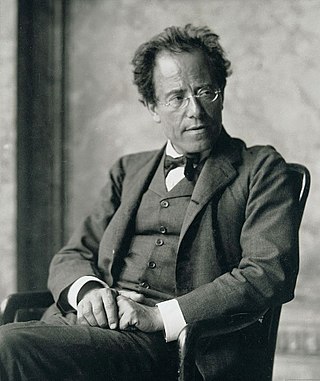
Gustav Mahler was an Austro-Bohemian Romantic composer, and one of the leading conductors of his generation. As a composer he acted as a bridge between the 19th-century Austro-German tradition and the modernism of the early 20th century. While in his lifetime his status as a conductor was established beyond question, his own music gained wide popularity only after periods of relative neglect, which included a ban on its performance in much of Europe during the Nazi era. After 1945 his compositions were rediscovered by a new generation of listeners; Mahler then became one of the most frequently performed and recorded of all composers, a position he has sustained into the 21st century.
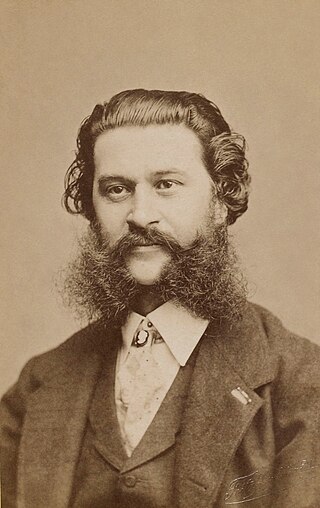
Johann Baptist Strauss II, also known as Johann Strauss Jr., the Younger or the Son, was an Austrian composer of light music, particularly dance music and operettas as well as a violinist. He composed over 500 waltzes, polkas, quadrilles, and other types of dance music, as well as several operettas and a ballet. In his lifetime, he was known as "The Waltz King", and was largely responsible for the popularity of the waltz in Vienna during the 19th century. Some of Johann Strauss's most famous works include "The Blue Danube", "Kaiser-Walzer", "Tales from the Vienna Woods", "Frühlingsstimmen", and the "Tritsch-Tratsch-Polka". Among his operettas, Die Fledermaus and Der Zigeunerbaron are the best known.
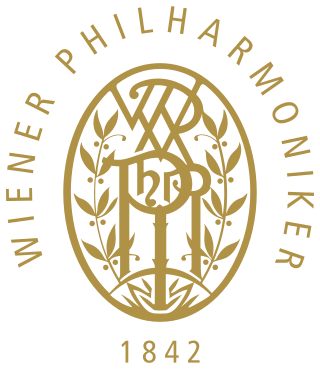
Vienna Philharmonic is an orchestra that was founded in 1842 and is considered to be one of the finest in the world.

The Vienna New Year's Concert is an annual concert of classical music performed by the Vienna Philharmonic on the morning of New Year's Day in Vienna, Austria. The concert occurs at the Musikverein at 11:15. The orchestra performs the same concert programme on 30 December, 31 December, and 1 January but only the last concert is regularly broadcast on radio and television.

Carl Adolph Schuricht was a German conductor.
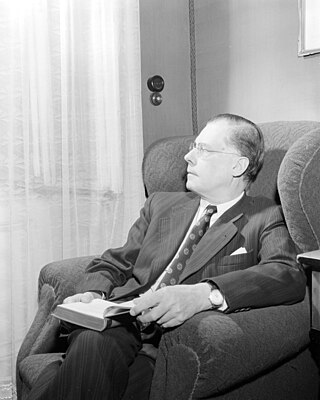
Karl August Leopold Böhm was an Austrian conductor. He was best known for his performances of the music of Mozart, Wagner, and Richard Strauss.

Herbert von Karajan was an Austrian conductor. He was principal conductor of the Berlin Philharmonic for 34 years. During the Nazi era, he debuted at the Salzburg Festival, with the Vienna Philharmonic, the Berlin Philharmonic, and during World War II he conducted at the Berlin State Opera. Generally regarded as one of the greatest conductors of the 20th century, he was a controversial but dominant figure in European classical music from the mid-1950s until his death. Part of the reason for this was the large number of recordings he made and their prominence during his lifetime. By one estimate, he was the top-selling classical music recording artist of all time, having sold an estimated 200 million records.

Dietrich Fischer-Dieskau was a German lyric baritone and conductor of classical music. One of the most famous Lieder performers of the post-war period, he is best known as a singer of Franz Schubert's Lieder, particularly "Winterreise" of which his recordings with accompanists Gerald Moore and Jörg Demus are still critically acclaimed half a century after their release.

Helen Jeanette Donath is an American soprano with a career spanning fifty years.

Johann Nepomuk Eduard Ambrosius Nestroy was a singer, actor and playwright in the popular Austrian tradition of the Biedermeier period and its immediate aftermath. He participated in the 1848 revolutions and his work reflects the new liberal spirit then spreading throughout Europe.

Johann Baptist Isidor Richter, or János Richter was an Austro-Hungarian orchestral and operatic conductor.

Karl Rankl was a British conductor and composer who was of Austrian birth. A pupil of the composers Schoenberg and Webern, he conducted at opera houses in Austria, Germany and Czechoslovakia until fleeing from the Nazis and taking refuge in England in 1939.
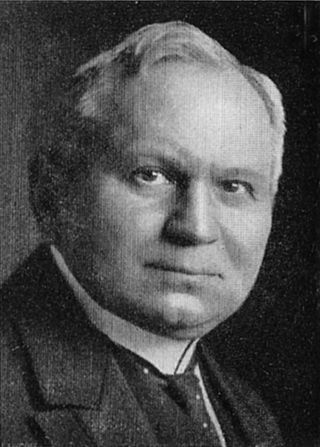
Ernst Arndt was a German Jewish stage and film actor notable for his later career in Austria.

Karl Hartl was an Austrian film director.
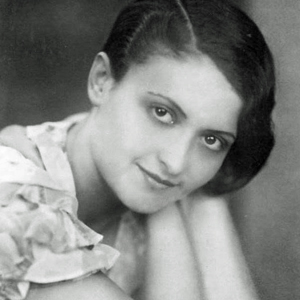
Irene Eisinger was a German and British opera singer and film actress. Her career was closely linked to the foundation and the early years of the Glyndebourne Festival Opera.

Herbert "Happi" Prikopa was an Austrian television presenter, conductor, operatic tenor, actor, composer, writer, pianist and cabaret artist.
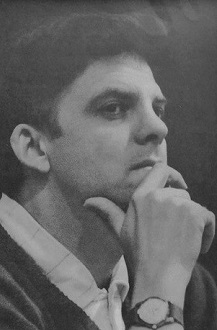
Kieth Engen was an American operatic bass who was a member of Munich's Bavarian State Opera for decades. Although his career was based in Munich, he appeared internationally as a guest singer at major opera houses and festivals and performed and recorded many of Bach's Passion oratorios and cantatas, primarily with the conductor Karl Richter. He was born Keith Sheldon Engen in Frazee, Minnesota, and died in Murnau am Staffelsee, Germany at the age of 79. He was given the title of Kammersänger in 1962 and was a recipient of the Bavarian Order of Merit. In the mid-1950s he also had a brief parallel career as a pop singer under the pseudonym Stan Oliver.

Karl Ludwig Bruno Seidler-Winkler was a German conductor, pianist and music arranger.

Adolf Müller Sr. was an Austrian composer. After an early career as an actor and singer, he composed operettas for theatres in Vienna.

CarlWilhelm Drescher was an Austrian violinist and composer. In Vienna he founded and led a successful salon orchestra, which followed the tradition of the Strauss orchestra.